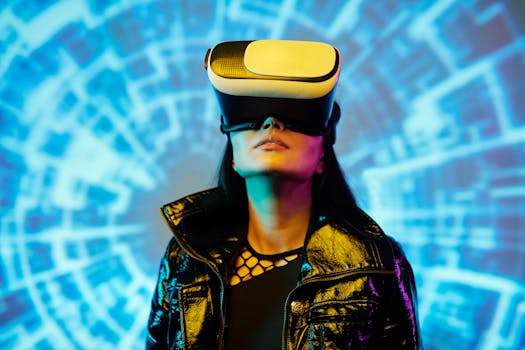
Introduction

As we venture deeper into the 21st century, the landscape of technology continues to evolve at an unprecedented pace. By 2025, we can expect to see a plethora of advancements that will reshape our daily lives, from smart gadgets that enhance convenience to groundbreaking innovations that challenge our understanding of technology itself.
Artificial Intelligence Integration

Artificial Intelligence (AI) is set to become an integral part of our everyday gadgets. By 2025, we will witness AI systems that not only assist us in mundane tasks but also learn and adapt to our preferences and habits. Imagine smart refrigerators that manage your grocery list, suggest recipes based on the ingredients you have, and even order missing items for you. The integration of voice assistants will evolve, making them more intuitive and capable of handling complex commands, thus enhancing user interaction.
Wearable Technology Advancements

Wearable technology will also experience significant growth. By 2025, we can anticipate smartwatches and fitness trackers that go beyond basic health metrics. These devices will likely feature advanced health monitoring capabilities, such as blood sugar levels, hydration status, and even mental health indicators through biometric data analysis. Additionally, augmented reality (AR) glasses may become mainstream, offering seamless integration of digital information into our physical surroundings, thus changing the way we interact with the world.
Smart Home Ecosystems

The concept of smart homes will become more sophisticated. In 2025, homes equipped with IoT (Internet of Things) devices will be able to communicate with each other to create a fully automated living experience. For instance, your home could adjust the temperature based on your daily routine, dim the lights when you start watching a movie, and even lock doors automatically when you leave. Voice-controlled home assistants will act as central hubs, making it easier to manage all connected devices.
Impact on Sustainability

With the rapid advancement of technology, sustainability will play a crucial role in gadget development by 2025. Companies will focus on creating eco-friendly products using sustainable materials and energy-efficient technologies. Expect to see gadgets designed for longevity rather than planned obsolescence, with features that promote recycling and reducing electronic waste. Innovations like solar-powered devices and energy-harvesting technology will also gain traction, aligning with global efforts to combat climate change.
Conclusion

The future of technology and gadgets in 2025 holds immense promise. From AI integration and advanced wearables to smarter homes and a commitment to sustainability, the next few years will redefine our relationship with technology. As we embrace these innovations, it is essential to remain mindful of their implications on our lives and the environment, ensuring that technology serves as a tool for progress rather than a source of dependency.


